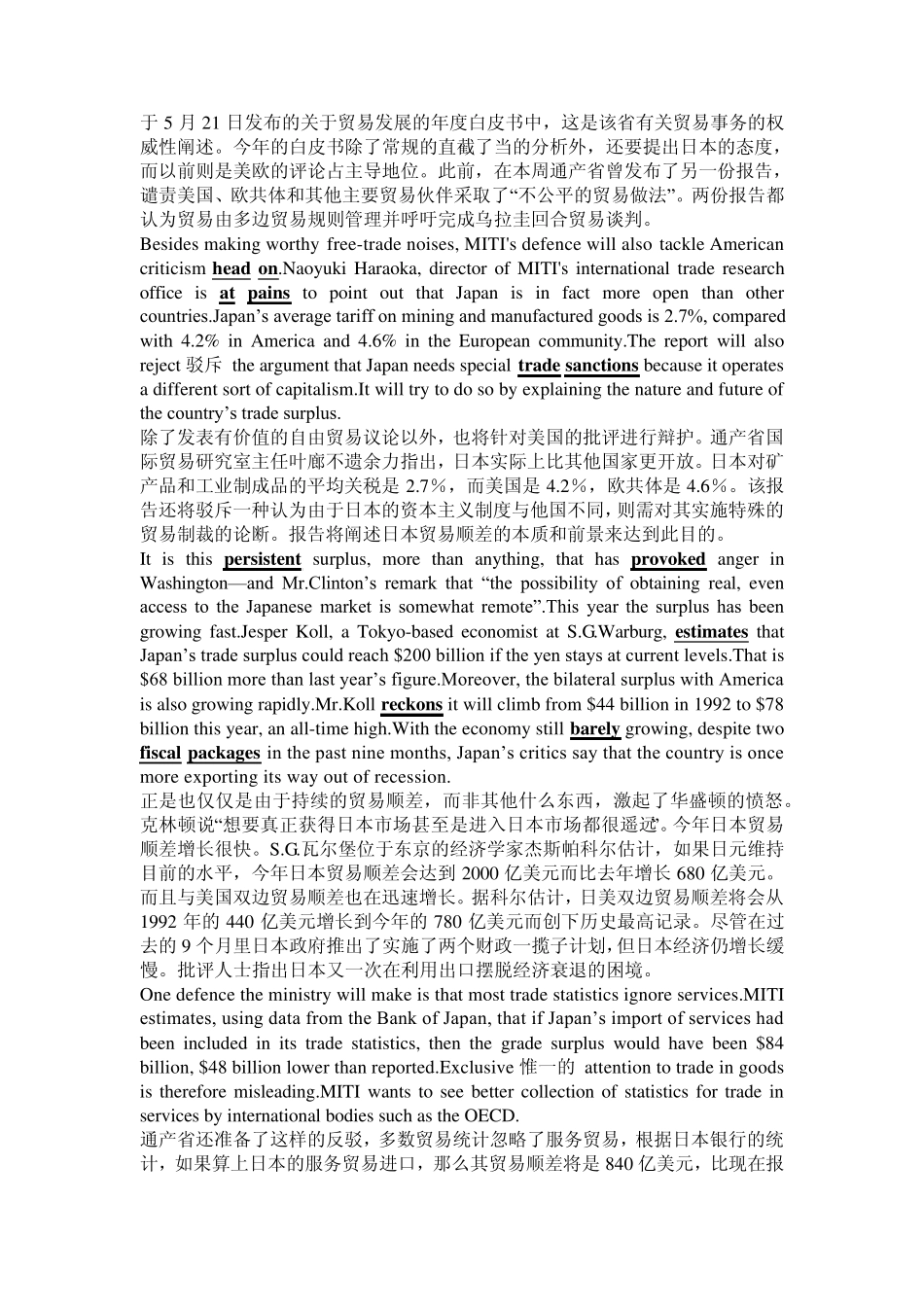第7 课 关于日本的贸易地位 Japan Says No TOKYO America wants Japan to meet import targets for some American goods.An unwilling Japan has decided to draw the line. 美国希望日本达到进口美国货物的指标,不那么情愿的日本决定划定最低界线。 Once, when Japan faced pressure from abroad, it would either give in reluctantly or keep quiet and hope that the fuss would die down.No longer, it seems.The Clinton administration strongly believes in exerting such pressure.Its policy is to open some Japanese markets (which it deems to be closed) by setting import targets—an approach to trade policy that supporters call “results-oriented” .This ugly term foreshadows uncertain consequences.Far from capitulating to this new thrust 要点,目标 of American trade policy, Japan is taking a stand that could lead to a trans-pacific confrontation. 从前,日本面对外来压力时,或者勉强屈服,或者保持沉默,并希望这种压力逐渐消失。但现这种情况已经一去不复返了。克林顿政府热衷于拖加这样的压力(依然认为对日施加贸易压力会有效果。)其政策是通过设定进口指标来打开日本某些市场(美国认为日本某些市场是对外封闭的)——这种方法被其支持者称为“以结果为导向” 贸易政策。这种牵强的说法预示着不确定的后果。日本非但没有屈服于美国的强硬贸易政策反而采取了一种可能会导致太平洋双岸对抗的矛盾(美日贸易冲突的立场)。 Japan’s government is deeply opposed to what America’s trade representative, Mickey Kantor, has called a new policy geared to “quantifiable results” for some products.It fears that the demands and threats which are part of any such policy are bound to spread—both within product groups and to new areas of trade.At the summit meeting last month between Bill Clinton and Japan’s prime minister, Kiichi Miyazawa, America insisted that Japan should come up with specific measures that would enable it to meet new impor...


